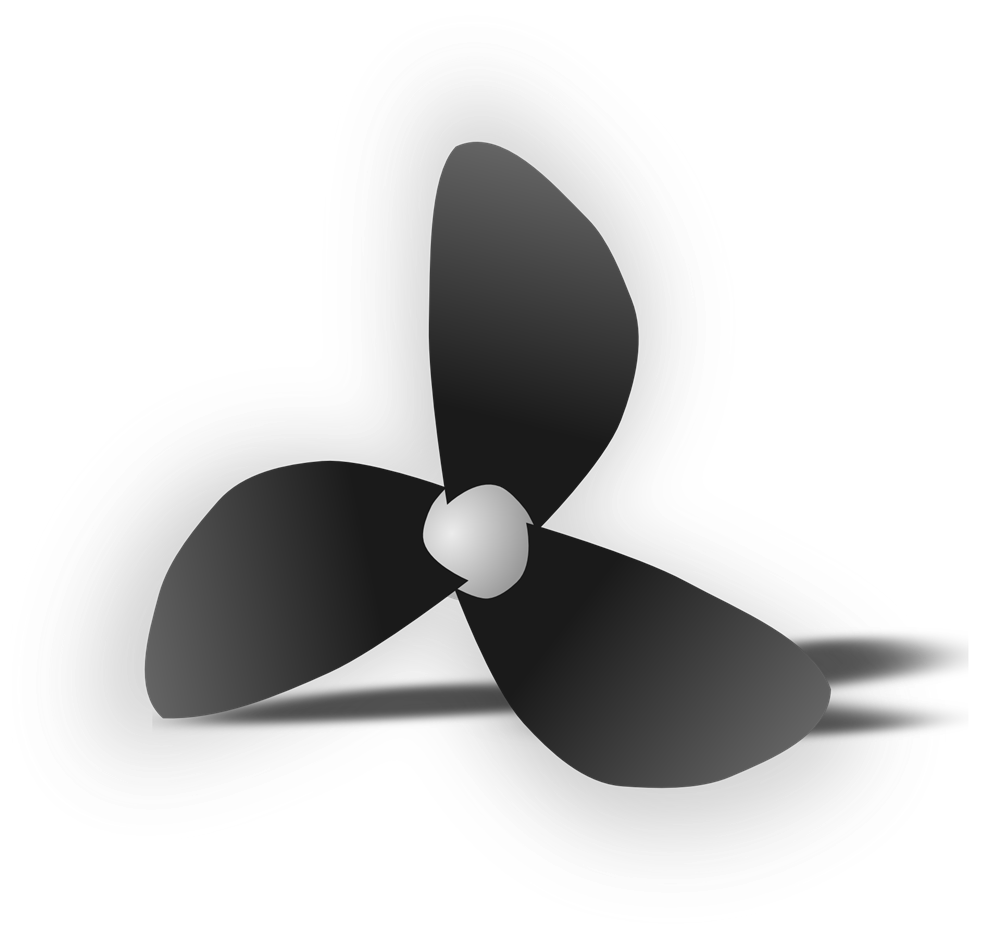With summer fast approaching, now is the time to start getting your boat ready for those weekend outings on the water.
But even after you have gotten everything ready to set sail, there are still ways you can improve your boating experience. Changing your propeller is one of the easiest and most effective ways to improve your boat's performance.
The right propeller can lower your gas consumption and increase your speed. It's all about finding the right propeller for your needs.
Read on to discover our boat propeller guide. We will break down the most popular models and types of propellers so you can find the right one for you!

Types of Materials
There are two materials most common in the manufacturing of boat propellers: stainless steel and aluminum. Each material comes with its pros and cons.
Stainless Steel
Stainless steel propellers are much more durable than their aluminum counterparts. And, because steel is much harder than aluminum, the blades can hold their shape even when they are thin. Making the blades as thin as possible reduces the weight of the propeller.
With less weight to drag around, your boat can move faster. There are some drawbacks to steel, however.
The biggest negative when compared to aluminum propellers is the upfront cost. Steel is much more expensive. You may end up saving money in the long run, though, thanks to the durability of steel reducing the need for maintenance, repairs, and replacement parts.
The durability of steel can also be a con in some situations. If you ever happen to strike a rock or other hard surface with your propeller, steel blades are less likely to bend, sending the shock of impact up into the rest of your prop. The damage to the mechanisms driving your propeller could be a more expensive fix than replacing a bent blade.
Aluminum
The biggest thing working in favor of aluminum is the upfront cost. Aluminum propellers are much more affordable than steel ones.
Another plus with an aluminum prop comes into play if you strike a rock or other hard surface with your propeller. Aluminum blades will bend when they hit a hard surface, absorbing the shock of the impact. This protects the rest of your boat from feeling the brunt of the crash.
There are a few issues with aluminum. They are less durable and may need to be replaced sooner than steel blades. You may find that their performance reduces faster than a steel prop.
The relatively soft nature of the metal also means the blades don't hold their shape well when cut very thin. This means that aluminum props are, as a general rule, thicker than steel props, increasing their weight and the drag on the boat, reducing potential top speed.
Popular Boat Propeller Brands
We carry all of the top brands that make boat props. Each brand caters to a unique clientele. Below we will discuss each brand's vision to help you find one that aligns with your needs.
Solas
This company distinguishes itself through its special manufacturing processes. They call it the squeeze casting method.
Whereas many manufacturers will simply pour molten metal into a mold and let it harden, Solas goes a step further.
After pouring the metal, they add pressure from a top-loading die. This extra pressure increases the density of the metal inside the die as it cools, improving the strength of the finished blades.
Mercury
The great thing about Mercury is its focus on customer satisfaction. They know that each boat owner has their own goals when it comes to getting out on the water.
That's why they have multiple lines of propellers, each one catering to a different type of boater. Whether you enjoy racing your friends or prefer a leisurely cruise on the lake, they make it easy to find the right model for you.
Yamaha
Yamaha isn't just an industry leader in boat props. Their company has a division for everything, from motorcycles to guitars to kitchen appliances.
This is because the folks at Yamaha are masters of engineering. They know how to build anything to the highest standards. Yamaha is a name you can always trust.
Propeller Size
Another key factor in the design of any propeller is size. The size of your propeller plays an important role in the overall performance of your boat.
Larger Propellers
Because they have more surface area, larger propellers are able to grab and push away more water as they spin. This allows them to propel a boat more efficiently than a smaller propeller.
On the other hand, their additional mass prevents the motor from spinning as quickly as a small propeller. So while larger props allow you to accelerate more rapidly and maintain speed with more fuel efficiency, they do have a lower maximum speed.
Smaller Propellers
Smaller propellers slip through the water with less force than a large propeller. This means that boats with smaller propellers aren't able to accelerate as quickly are large propellers.
But, because they are so much lighter, they are able to spin faster than a large propeller. So while they take longer to accelerate your boat, they do eventually reach a higher top speed.
Try Our Interactive Boat Propeller Guide
Now that you know a little bit about the best boat propeller manufacturers and the key elements of a boat propeller, you are ready to make your purchase.
Just make sure that you know the make and model of your current propeller. This will make it easier to identify a replacement that will fit your boat.
If you still aren't sure which propeller is right for you, check out our handy interactive boat propeller guide.


































